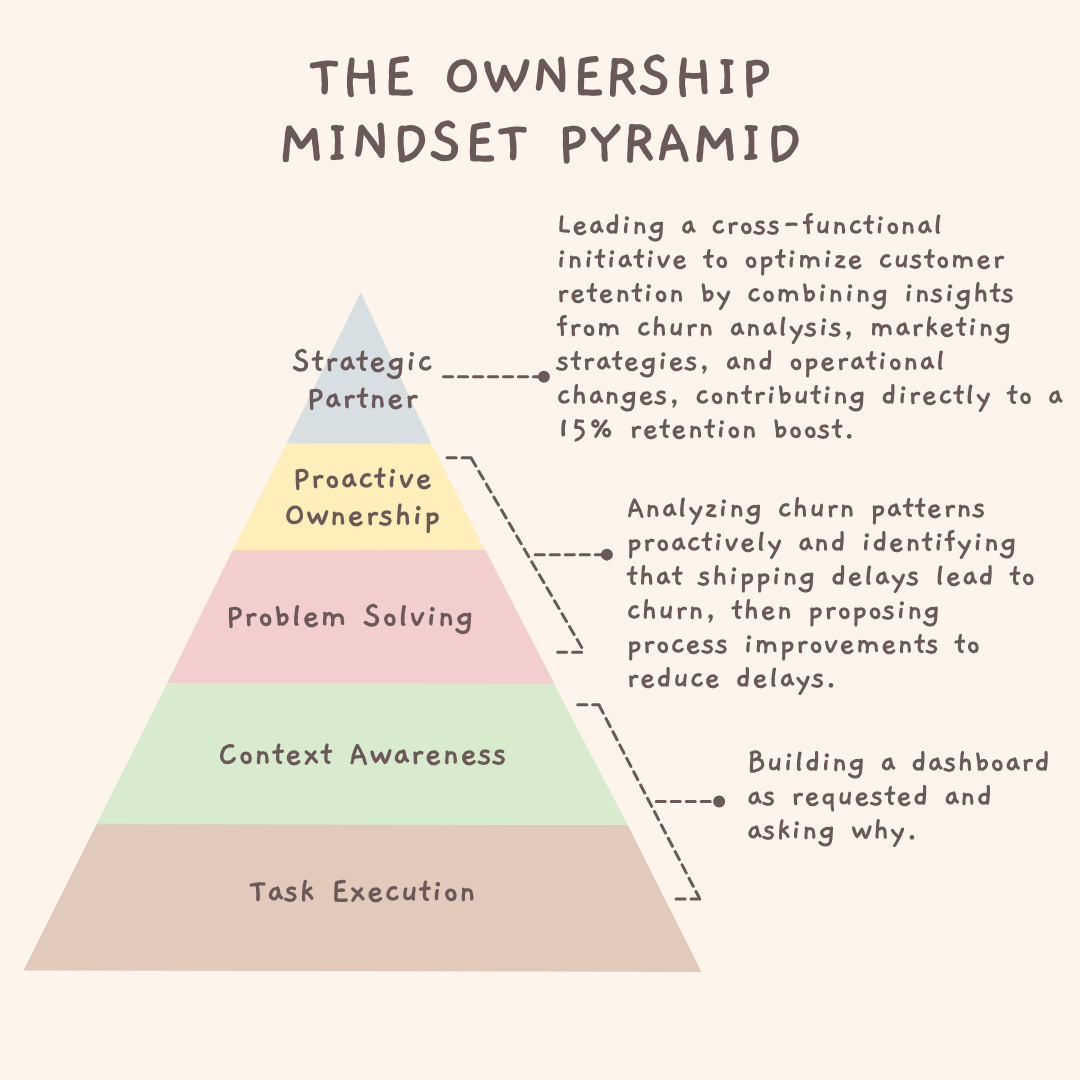Hi, fellow future and current Data Leaders; Ben here 👋
Before we dive into the article, I’m also excited to share that I’ve started to put together a community for data leaders. The goal of this community is to create a space where data leaders can learn to be more impactful, share their issues and challenges, get other data leaders to weigh in, and so much more, so sign up here to get an invite.
With that out of the way, let’s jump into it!
Intro
It's that time of year when many data teams are looking to plan their upcoming projects. Whether you're an IC(individual contributor) or data manager, that doesn't mean just taking the projects provided by other teams.
After all, those teams have their own goals. They won't and don’t care about the impact you drive. No one will take ownership of your team's impact, and that's why it's important to actually find projects that move the needle for the business.
Just completing 1000 Jira tasks doesn't mean your team was impactful.
It can be easy to get caught up in the motion of work without ever asking if the work is worth doing. As the saying goes, don't mistake motion for progress, especially if your goal is to grow.
In this article I want to discuss why it's important to find projects that move the needle and how to do so.
Let’s Start With Why
It can be tempting as an IC to sit back and let your director or other teams dictate the work that you take on.
But the truth is, most people I’ve talked to, whether it be directors or high level ICs, all of them somehow had to push to get the work that they wanted to grow in their career.
They had to ask to be part of data engineering projects as an analyst
They pushed to take on a larger project than they had in the past
They not only made a suggestion in terms of features, but they actually already built the initial prototype.
Don’t get me wrong, there are companies and teams where it can be very hard to get out from what your manager wants to do. They might be micromanaging and causing limits to your growth(or maybe they are great and get you all the right projects).
There isn’t a perfect path here, and of course, there is still the expectation that you’ll get your normal work done. But if you want to make some changes to your career trajectory, you’ll have to take some level of risk.
The question becomes, how do you find projects worth doing?
How To Find Projects Worth Doing
To find projects worth doing, you need to start by understanding the business. As data engineers and analysts, we also have direct access to the data and core metrics, meaning can more easily dig into business questions we might have.
We just have to pause long enough to start asking questions about that data and not just deliver data pipelines and dashboards. For example, if you're working at a Starbucks, McDonalds, or Cava-type restaurant, a key metric is Comparable Store Sales; if it's a hotel, its Occupancy and Average Daily Rate.
Just understanding the metrics is not sufficient; we also need to understand how we can make those metrics move. You might start asking yourself questions such as:
What actually impacts occupancy?
Was there a rational reason for it to be down this week, like a storm or seasonality?
Are our competitor's pricing lower?
If we priced lower, would we see an increase?
The business likely already has some strategies and goals set for the year that surround either these core metrics or perhaps some other metrics they view as more important at the moment. The goal is to try to find projects that would move the needle.
Now, these goals will manifest in different ways depending on the team you're on. For example, if you're on an HR team, your metrics might not feel directly related to the business's overall goal. But every team needs to play their part in pushing the larger goals.
In the end, you want to find projects that:
Align with your business/department goals
You get clear credit for your work
Knowing what metrics to focus on is step one. Next, you'll want to shift the way you think from IC to business owner.
Think Like An Owner
Keep reading with a 7-day free trial
Subscribe to SeattleDataGuy’s Newsletter to keep reading this post and get 7 days of free access to the full post archives.



